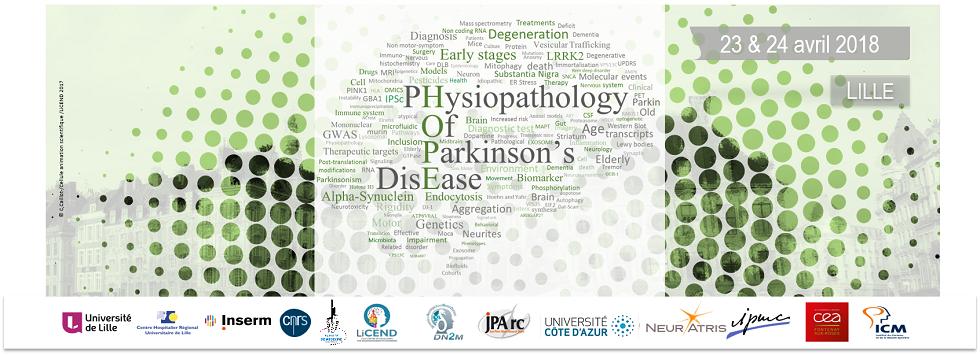MOUTON-LIGER, François(1-4), ROSAZZA, Thibault (1-4), SEPULVEDA, Julia (1-4), MICHEL, Patrick P. (1-4), CORVOL, Jean-Christophe (1-5), CORTI, Olga (1-4).
(1) Institut du Cerveau et de la Moelle Epinière, ICM, Paris, France
(2) Inserm, U1127, Paris, France,
(3) CNRS, UMR 7225, Paris, France,
(4) Sorbonne Universités, Paris, France,
(5) Assistance-publique Hôpitaux de Paris, Inserm, CIC-1422, Department of Neurology, Hôpital Pitié-Salpêtrière, Paris, France
Neuroinflammation and mitochondrial dysfunction, key mechanisms in the pathogenesis of Parkinson's disease (PD), are usually explored independently. The discovery of PD-linked genes (PARK2/Parkin and PINK1) regulating mitochondrial quality control has strengthened the role of mitochondrial dysfunction. Parkin has recently emerged as a key regulator of innate immune responses and neuroinflammation. Recent studies provided evidence that overactivation of the NLRP3 inflammasome, a large signaling complex that senses and mounts reactions to infection and tissue damage, contributes to neurodegeneration in PD. We reported an exacerbation of NLRP3 inflammasome activation by specific inducers in microglia and bone marrow-derived macrophages from Park2-/- mice. This defect was confirmed in blood-derived macrophages from patients with PARK2 mutations and was reversed by MCC950, which specifically inhibits NLRP3 inflammasome complex formation. Enhanced NLRP3 signaling in Parkin-deficient cells was accompanied by a lack of induction of A20, a well-known negative regulator of the NF-κB pathway recently shown to attenuate NLRP3 inflammasome activity. Overall, this work will foster integrated consideration of the deleterious crosstalk between two key pathological mechanisms underlying PD in animal models and patients and suggest that the A20/NLRP3-inflammasome axis participates in the pathogenesis of PARK2-linked PD.

 PDF version
PDF version
